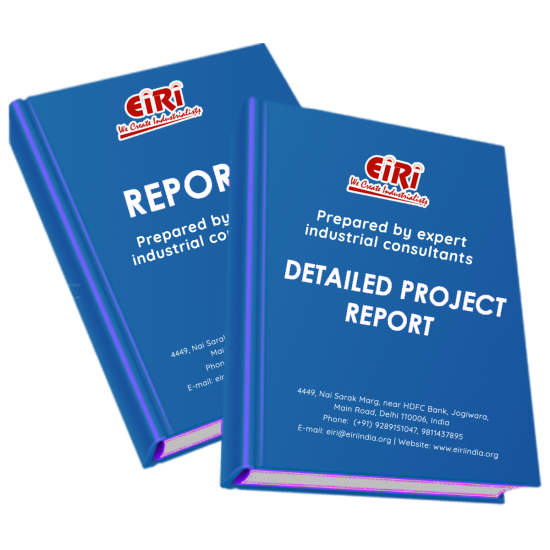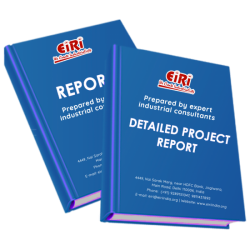Khandsari Sugar (200 TCD)

- More than 40 years of experience
- Managed by expert industrial consultants
- ISO 9001-2015 Certified
- Registered under MSME, UAM No: DL01E0012000
- 24/5 Research Support
Get your quesries resolved from an industry expert. Ask your queries before report or book purchase. - Custom Research Service
Speak to the our consultant to design an exclusive study to serve your research needs. - Quality Assurance
All reports are prepared by highly qualified consultants & verified by a panel of experts. - Information Security
Your personal & confidential information is safe & secure.
KHANDSARI SUGAR (200 TCD)
[EIRI/EDPR/1620] J.C.: 423,658
INTRODUCTION
Sugar has served mankind as a source of energy and as a sweeting agent the down of civilization. Sugar cane (Saccharum officinarum) and sugar beet (Betu vulgaris) are the two principal sources of the world's supply of sugar. sugar cane is grown in tropical and sub-topical countries, while beet root is sugar from sugar cane originated in India, and from here it spread eastwards to Malaya and China and westwards to Persia and beyond. The process of obtaining sugar from beet was developed in France towards the end of the 18th century, and soon the beet become an important raw material for sugar production in many European Countries.
The earliest recorded evidence of concentrated juice called gur is found in pratimokasha, a code of behaviour of Budhists written in 6th century B.C. and in Mahadhashya of Patanjali of 350 B.c. The first traceable reference about the sugar Industry in India by an easterner in from Megasthenes. In kuang-kumfang-Pu, it is stated that the Chinese Emperor Tai-Toung (A.D.627-650) sent a mission to Magadh (Patna) to learn the technique of sugar manufacture. The Indian sugar was exported as early as in 15th century. The east India Company started exporting sugar to England in 1791.
Several West Indian, Mauritius planters were attracted to India and a substantial Industry came to be estimated in Bihar. During the first, three decades of 20th century the Khandsari sugar factories boomed and growed like mushroom specially in U.P. In 1932 Government of India passed the sugar industry. In 1950, the co-operative societies came into existence and the growth of Khandsari sugar factories was good, although most of them were cottage or small scale industries, located mainly in U.P. It is estimated that in 1962 out of 135 units, 112 units where in U.P. alone.
Khandsari is a kind of raw can sugar manufactured in India since ancient times. After the advance of the modern vacuum pan sugar industry in the country, the production of khandsari has been on the decline. The khandsari has somehow survived in rural areas where still exists a demand for it among certain orthodox classes. Besides, it has a special market in certain parts of the country where it is preferred to white sugar in the preparation of certain sweets. Also when white sugar is not freely available and its price is high, khandsari is substituted.
Khandsari sugar, except for small quantities exported, is consumed whoolly in the country itself.
Khandsari sugar industry about 4% of the cane raised in India. In compression to over 70% of the sugar cane raised in India in crushed for gur manufacture their by greater part of the product is used for domestic cooking and drinks.
Khandsari sugar factory being an agro based industry has to face many problems, the output fluctuates, with the vagaries of monsoons and low productivity of sugarcane, which is attributed to inadequate irrigation facilities, untimely supply of seeds etc.
COST ESTIMATION
Plant Capacity 200 TCD/Day
Land & Building (8000 sq.mt.) Rs. 4.10 Cr
Plant & Machinery Rs. 4.34 Cr
Working Capital for 1 Month Rs. 1.12 Cr
Total Capital Investment Rs. 9.73 Cr
Rate of Return 21%
Break Even Point 61%
CONTENTS
INTRODUCTION
SUGAR CANE RESEARCH
PROPERTIES
PRODUCT USES AND APPLICATIONS
B.I.S. SPECIFICATION
MARKET SURVEY
DIVERSION OF SUGARCANE TO JAGGERY/GUR & KHANDSARI UNITS IN UP IN 2012-13
MANUFACTURERS/SUPPLIERS OF KHANDSARI SUGARS
PROCESS OF MANUFACTURE
PROCESS FLOW CHART USING VEGETABLE MUCILAGENOUS
PROCESS FLOW CHART USING SULPHURISATION
PROCESS IN DETAILS
IMPROVEMENT IN KHANDSARI PROCESS
BY PRODUCTS OF SUGAR INDUSTRY
PRINCIPLES OF PLANT LAYOUT
PLANT LOCATION FACTORS
EXPLANATION OF TERMS USED IN THE PROJECT REPORT
COMPLETE PLANT SUPPLIERS
SUPPLIERS OF RAW MATERIALS
SUPPLIERS OF PLANT AND MACHINERIES
APPENDIX – A:
01. PLANT ECONOMICS
02. LAND & BUILDING
03. PLANT AND MACHINERY
04. OTHER FIXED ASSESTS
05. FIXED CAPITAL
06. RAW MATERIAL
07. SALARY AND WAGES
08. UTILITIES AND OVERHEADS
09. TOTAL WORKING CAPITAL
10. TOTAL CAPITAL INVESTMENT
11. COST OF PRODUCTION
12. TURN OVER/ANNUM
13. BREAK EVEN POINT
14. RESOURCES FOR FINANCE
15. INSTALMENT PAYABLE IN 5 YEARS
16. DEPRECIATION CHART FOR 5 YEARS
17. PROFIT ANALYSIS FOR 5 YEARS
18. PROJECTED BALANCE SHEET FOR (5 YEARS)
How to Make Project Report?
Detailed Project Report (DPR) includes Present Market Position and Expected Future Demand, Technology, Manufacturing Process, Investment Opportunity, Plant Economics and Project Financials. comprehensive analysis from industry covering detailed reporting and evaluates the position of the industry by providing insights to the SWOT analysis of the industry.
Each report include Plant Capacity, requirement of Land & Building, Plant & Machinery, Flow Sheet Diagram, Raw Materials detail with suppliers list, Total Capital Investment along with detailed calculation on Rate of Return, Break-Even Analysis and Profitability Analysis. The report also provides a birds eye view of the global industry with details on projected market size and then progresses to evaluate the industry in detail.
We can prepare detailed project report on any industry as per your requirement.
We can also modify the project capacity and project cost as per your requirement. If you are planning to start a business, contact us today.
Detailed Project Report (DPR) gives you access to decisive data such as:
- Market growth drivers
- Factors limiting market growth
- Current market trends
- Market structure
- Key highlights
Overview of key market forces propelling and restraining market growth:
- Up-to-date analyses of market trends and technological improvements
- Pin-point analyses of market competition dynamics to offer you a competitive edge major competitors
- An array of graphics, BEP analysis of major industry segments
- Detailed analyses of industry trends
- A well-defined technological growth with an impact-analysis
- A clear understanding of the competitive landscape and key product segments
Need Customized Project Report?
- Ask for FREE project related details with our consultant/industry expert.
- Share your specific research requirements for customized project report.
- Request for due diligence and consumer centric studies.
- Still haven't found what you're looking for? Speak to our Custom Research Team
About Engineers India Research Institute:
Note: We can also prepare project report on any subject based on your requirement and country. If you need, we can modify the project capacity and project cost based on your requirement.
Our Clients

Our Approach
- Our research reports comprehensively cover Indian markets (can be modified as per your country), present investigation, standpoint and gauge for a time of five years*.
- The market conjectures are produced on the premise of optional research and are cross-accepted through associations with the business players
- We use dependable wellsprings of data and databases. What's more, data from such sources is handled by us and incorporated into the report
Why buy EIRI reports?
- Our project reports include detailed analysis that help to get industry Present Market Position and Expected Future Demand.
- Offer real analysis driving variables for the business and most recent business sector patterns in the business
- This report comprehends the present status of the business by clarifying a complete SWOT examination and investigation of the interest supply circumstance
- Report gives investigation and top to bottom money related correlation of real players/competitors
- The report gives gauges of key parameters which foresees the business execution























